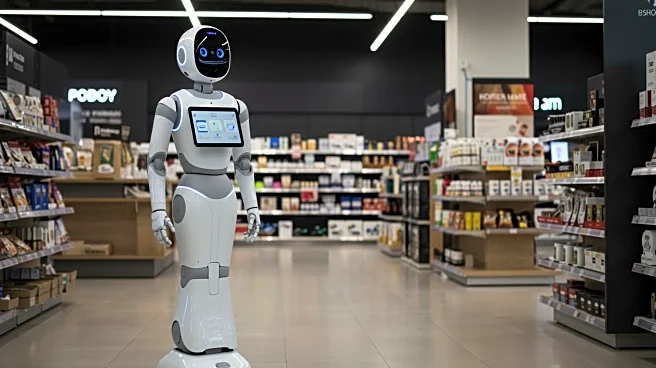What's Happening?
Artificial intelligence is revolutionizing the retail industry with the emergence of AI agents, which are poised to significantly impact both operational efficiency and consumer behavior. Unlike traditional AI tools, AI agents can autonomously execute tasks, making decisions based on goals and reinforcement learning. In retail operations, these agents can automate tasks such as dynamic pricing, supply chain management, and fraud detection, allowing human employees to focus on strategic decision-making. On the consumer side, AI agents are expected to change online shopping by acting as personal shopping assistants that understand brand preferences, budget constraints, and needs, potentially reducing impulse purchases.
Why It's Important?
The rise of AI agents in retail signifies a major shift in how businesses operate and interact with consumers. For retailers, the automation of operational tasks can lead to increased efficiency and cost savings. However, the consumer-side disruption poses challenges, as AI agents may decrease impulse purchases, affecting revenue. Retailers must adapt by developing strategies that cater to algorithmic shoppers, focusing on tangible attributes like quality metrics and sustainability credentials. This transformation could reshape industries such as SEO and loyalty programs, requiring businesses to rethink their approaches to differentiation and customer engagement.
What's Next?
Retailers are advised to pursue a dual strategy, investing in operational AI while preparing for the rise of consumer-facing AI agents. This involves building an API-first architecture to ensure product information is accessible to AI systems. As AI agents become more mainstream in the next 18-24 months, retailers must develop strategies to support operational efficiency and adapt to the AI-driven consumer landscape. Those who embrace both sides of the AI retail paradox can position themselves to lead the transformation and thrive in the evolving market.










